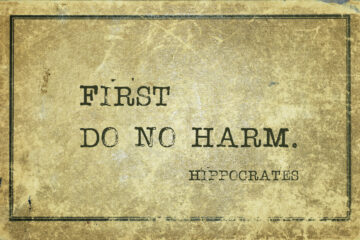History matters because the experiences of others can and will create the first pillar of wise decision making. When we are faced with a problem or a circumstance for the first time, our mind tries to figure out, what should we do in this situation. The conclusion begins to form by drawing knowledge from things we have learned from trusted sources. The miraculous experiences from the history of others are a great source of societal knowledge and becomes the basis of our holidays.
We are entering the Christmas season. An important and memorable time of the year to hundreds of millions of people. The word “Christmas” is synonymous with the birth of Christ Jesus but the word itself is not mentioned once in the bible; the main source of knowledge for the Christian faith. Today, people worldwide celebrate this beautiful holiday; rich with family traditions. It commemorates the birth of Jesus, the incarnate Christian God yet throughout the rest of the year, many of these same people who take part in the celebrations, live a life void of religious beliefs. It is important to note that history speaks to who we were while our current lives transform the history for future generations. If we forget the lessons of the past, we stand to lose the truth that made our history so meaningful.
The word Christmas, was first used around 1038 AD. It’s actually a combination of two words…Christ and Mass.
Though the word Christ is commonly used as Jesus’ name; it is actually a title. It comes from a Greek word that means “Anointed One”. The Hebrew word is “Messiah”; a term that Old Testament prophets used to describe the coming Savior. Many people get needlessly upset when the word Christmas is abbreviated Xmas but to better understand the historic meaning one must know that Greek is an important language in the early Christian faith. They were not taking “Christ” out of Christmas; they were using the first letter of the Greek word for Christ, (Χριστός) “X” (pronounced “kai” in Greek), and it has been used throughout history to represent Jesus’ title as the Christ.
The second word is Mass. In Middle English, masse, from Old English mæsse, from Vulgar Latin *messa “Eucharistic service,” literally “dismissal,” from Late Latin missa “dismissal,” fem. past participle of mittere “to let go, send” (source N2 of the Etymology Dictionary, a source that explains what words meant at the time they were originally used.) Catholics still celebrate the service of the Mass in their churches and, most importantly, the Mass is the exact same service worldwide. The uniformity of the Mass was one reason the word Catholic was chosen for the first Christian faith. It literally means universal.
The Mass of the nativity of Jesus on December 25th started before we formally named the holiday Christmas. The first recorded religious midnight Mass on December 25th was in 336 AD, during the time of the Roman Emperor Constantine (the first Christian Roman Emperor).
There are many different traditions and theories as to why Christmas was originally celebrated on December 25th. The earliest Christian tradition places March 25th as the exact day when the angel Gabriel announced to Mary that she would have a very special baby. The Feast of the Annunciation it still celebrated on the 25th March. Nine months after the 25th of March is the 25th December; the due date of Jesus’ natural birth.
Even more interesting, March 25th was the day the Jewish people believed that the world was made. It is also the day that Jesus died (Nisan 14 in the Jewish calendar). Tradition holds that Jesus was conceived and died on the same day of the year, thirty-three years apart.
If this is my last post, I want all to know there was only one purpose for all that I have written; to have made a positive difference in the lives of others.
“Inquisitio veritatis”
Anthony “Tony” Boquet, the author of “The Bloodline of Wisdom, The Awakening of a Modern Solutionary”













